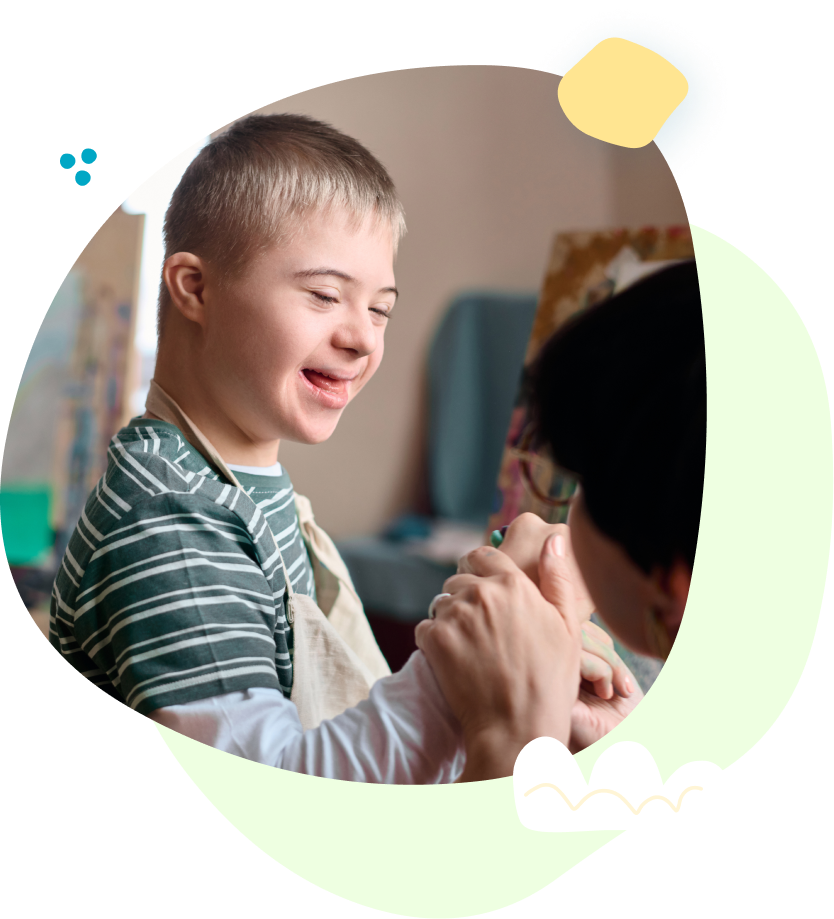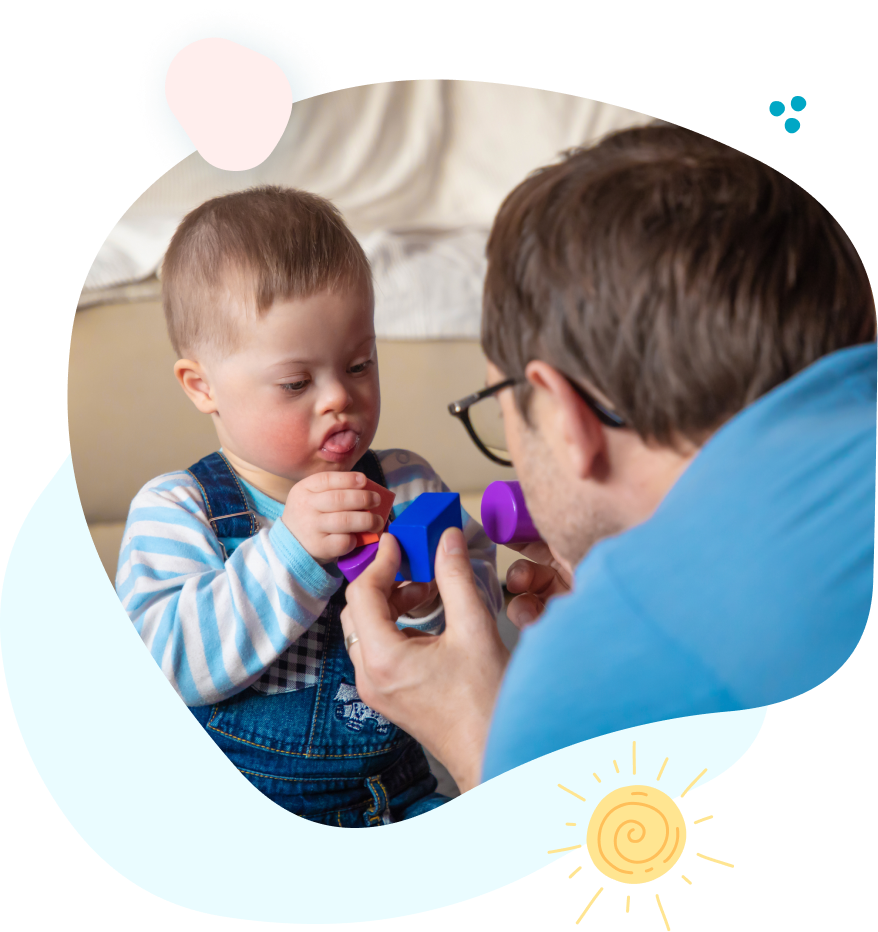Your Clinic
SET A LOCATION
Your Clinic
SET A LOCATION
Down syndrome is a genetic condition caused by an extra copy of chromosome 21, affecting physical development, cognitive abilities, and overall health. With the right support, children with Down syndrome can achieve significant developmental milestones and lead fulfilling lives. Occupational, physical, and speech therapy play a vital role in empowering these children by addressing their unique challenges and enhancing their strengths.
Down syndrome occurs in about 1 in every 700 births worldwide. Common traits include low muscle tone, a single deep crease across the palm, a slightly flattened facial profile, and varying degrees of intellectual disability. However, every child with Down syndrome is unique, with different abilities, challenges, and potential.

Children with Down Syndrome benefit from our specialized therapeutic tools that address the unique challenges associated with this condition, including low muscle tone, joint stability, and motor planning. Our interventions support strength, coordination, and functional independence.


Aquatic Therapy is a skilled treatment method used by therapists to enhance your child's functional abilities. The warm, buoyant water enables your child to feel free and have fun in therapy, in a natural environment! The water's buoyancy reduces stress on joints and muscles while providing resistance for strength building, making it particularly beneficial for children with movement limitations.
Attend our clinics for expert orthotics evaluations and fittings, designed to improve mobility and ensure optimal comfort tailored to your needs. Children at PPT can attend monthly clinics for custom wheelchairs or orthotics, designed to enhance mobility and ensure proper postural alignment. These specialized devices support proper body alignment and improve functional mobility.
PPT uses cutting-edge tools like Galileo whole-body vibration platforms and Mano dumbbells to enhance therapy outcomes. Therapeutic vibration helps to optimize neuroplasticity, promote motor learning and decrease the complications of many childhood conditions that limit movement, sensory processing skills, and learning. A unique therapeutic intervention used to decrease muscle tightness, change habitual patterns of movement in a single joint, or improve range of motion.

Occupational therapy focuses on helping children master the skills needed for daily living and independence. For children with Down syndrome, OT can:
Activities like grasping, writing, and self-feeding.
Managing sensitivity to stimuli like sound or touch.
Learning to dress, groom, and navigate the home environment.
Encouraging interactions in school and play settings.
Physical therapy is essential early on to address hypotonia (low muscle tone), common in Down syndrome. Key benefits include:
Exercises to improve core and limb strength.
Enabling better movement and posture.
Support for crawling, walking, and other gross motor milestones.
Managing conditions like joint instability or spinal alignment concerns.


Communication is a crucial aspect of a child’s development, and children with Down syndrome often benefit from speech therapy to:
Helping with feeding and clear articulation.
Making words and sentences easier to understand.
Building vocabulary and sentence structure.
Teaching gestures or alternative methods, such as sign language, for better interaction.
Early intervention programs, typically involving a combination of occupational, physical, and speech therapy, are crucial for setting a strong foundation. These therapies not only address developmental delays but also empower parents and caregivers with strategies to support their child's growth at home.
Every child with Down syndrome has a unique path, filled with opportunities for growth and learning. With the combined efforts of therapy, family support, and community resources, these children can thrive, achieve their goals, and bring joy to those around them.
If you’re looking for professional therapy services tailored to children with Down syndrome, contact us today to learn more. Together, we can create a plan that meets your child's needs and helps them shine.
We empower children, families, and the community to learn, grow, and celebrate every child's unique abilities.
Quick Links
Contact Details
Phone: 561-376-2573 | 561-918-0190
Fax: 561-218-4939
VIP Concierge: 561-717-1764
Clinic Locations
All Rights Reserved | Progressive Pediatric Therapy, Inc. | Privacy Policy | Terms of Service
Site by Spearlance